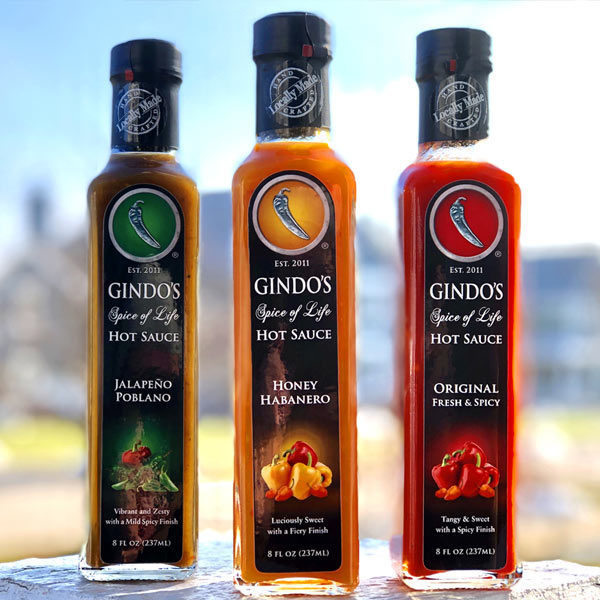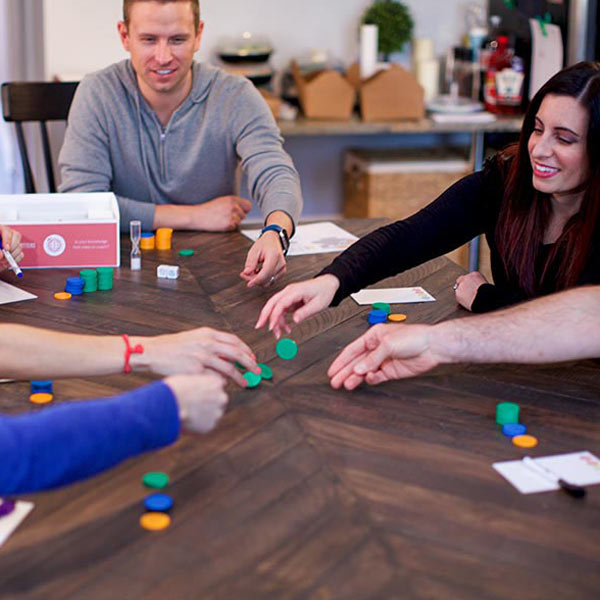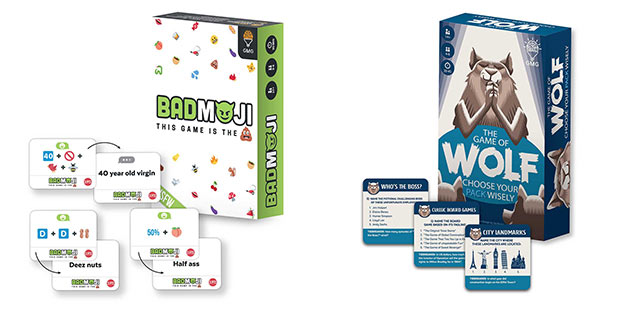Chris Ginder is unapologetically obsessed with hot sauce. He creates a new flavor almost every week. Today, his business offers about 103 unique sauces, and “unique” is often an understatement. (Chocolate Cold Brew hot sauce, anyone?)
You may call him crazy, but he prefers “Gindo.”
In 2011, Chris and Mary Ginder launched Gindo’s Hot Sauce in LA. Soon after, they brought their business to Batavia, Illinois, where they found a surprisingly ideal home for their obsession.
The finance portion of the program was invaluable,” Mary says. “Understanding cash flow is absolutely necessary for success, and the mentors were awesome in helping us apply that to our business.
Illinois isn’t typically known as a hot sauce destination – Midwesterners traditionally wince at the truly hot stuff – but that’s changing. In the last decade, a crop of new businesses has emerged, and they’re serious about their hot sauce.
It’s no longer just hot sauce. It’s craft hot sauce. Think food-pairings. Think locally sourced ingredients. Think small-batch brews. Like the micro-breweries of our region, these new craft hot-sauce cookeries are capitalizing on Chicagoland’s foodie culture and the nutrient-rich soil of our state, perfect for growing peppers. We, the Illinoisans, are willing devotees.
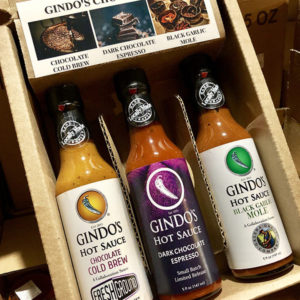
When Gindo’s Hot Sauce joined Innovation DuPage, their product was already a hit, and they were on their way to becoming the Three Floyds of craft hot sauce. (If you’re wondering about this Three Floyds business, ask your nearest craft beer nut.) Their product is delicious and complex. Equally important, it’s natural and locally sourced. Chris and Mary are persnickety with their ingredients, only selecting fresh peppers from area farmers and “carefully curated sea salt.” Their audience, equally persnickety, loves to know that such care is being put into their food. And while the couple is consistent with quality, they are also full of surprises. Like a good line of craft beer, Chris’ flavors are inventive, dynamic and perfectly paired with certain foods, and his rapid-fire, small-batch releases are the perfect business model to keep the market hungry. Gindo’s small batches are so ravenously popular that they rarely make it to the online shop, since they routinely sell-out at farmers’ markets. Some of the couple’s rarer batches can be as difficult to get your hands on as a Dark Lord Stout.
If Gindo’s had the success of a craft brewery, it also had the troubles of one. Just as the business rose in popularity, a whole wave of craft hot sauces followed suit. In the last decade, more than a dozen competitor businesses cropped up in the area. Overnight, the farmers’ markets became crowded with craft hot sauces, all promising similar products to Gindo’s under the craft principals of experimentation, curation and fresh, locally sourced ingredients (as well as trippy labels with elaborate designs, which can be just as critical). The couple claimed that their hot sauce was the best – if you ask their customers, it is – but so did everyone else.
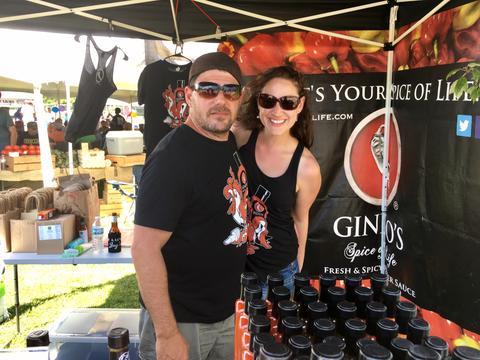
The Ginders were stuck in a woefully bloated market.
It was time to tweak their recipe.
(Don’t worry! Not their hot sauce recipe, just their business.)
Chris was attending a networking event in Batavia when he met Ellen Huxtable, a fellow entrepreneur and a board member at Fermi National Accelerator Laboratory, one of Innovation DuPage’s partner organizations. Ellen had already heard all about Gindo’s.
“It just so happened her son was a huge fan of our sauces,” Mary says.
When Chris told Ellen about the challenges Gindo’s was facing, she referred him to ID. Less than a week later, Chris and Mary joined our Accelerator program, an intensive course designed to help business owners grow their customer base, improve operations and break into new markets, while networking and sharing ideas with fellow entrepreneurs. For the Ginders, who were fighting for air in an increasingly oversaturated market, it gave them the edge their business needed.
“The finance portion of the program was invaluable,” Mary says. “Understanding cash flow is absolutely necessary for success, and the mentors were awesome in helping us apply that to our business.”
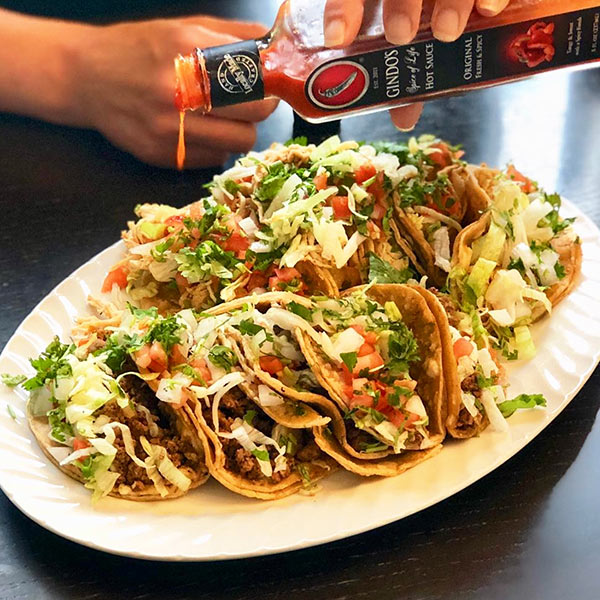

ID’s Accelerator program took a comprehensive approach to Gindo’s Hot Sauce. Mentors and fellow entrepreneurs helped the Ginders identify “bottlenecks” in their business model – inefficiencies that have a negative impact on the business as a whole – and improve those areas.
“ID helped us approach our company more like owners,” Mary says. “We’ve taken a step back to focus more on how to manage operations. Instead of trying to do all the work ourselves, we’ve hired several employees to delegate responsibilities.”
The result? Business is booming, Gindo’s is more efficient than ever, and the Ginders are looking to take their operations to the next level. Mary says the couple is even planning to open a hot-sauce manufacturing facility in the near future.
That’s good news for everyone. Now, Chris can focus even more energy on his passion for all things spice, and we can have a second helping of that Honey Habanero.
